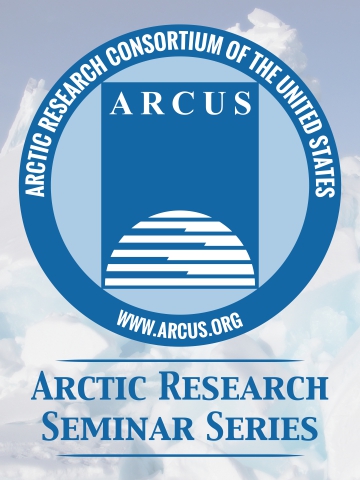
ARCUS invites registration for the next Arctic Research Seminar featuring Jens Terhaars of the University of Bern. Jens Terhaars’ presentation, titled “Stressors of Arctic Ocean Ecosystems: Improved Understanding of Primary Production and Ocean Acidification” will be held via Zoom.
Registration is required for this event.
Abstract
The Arctic Ocean is changing faster than any other ocean region in the world. Uptake of anthropogenic carbon, amplified warming, sea ice reduction, coastal erosion, and enhanced riverine runoff are driving important changes in the Arctic Ocean ecosystems through changes in primary production and ocean acidification. However, the current understanding of primary production and ocean acidification in the Arctic remains highly uncertain. Furthermore, projections of both processes by Earth-System Models diverge strongly in this region.
During this webinar, Dr. Terhaar will present: (1) a modelling study that quantifies the impact of terrigenous nutrients from rivers and coastal erosions on Arctic Ocean primary production, a process that was (wrongly?) neglected so far, and (2) results from two studies on emergent constraint on ocean acidification in the Arctic Ocean that suggests that projections of Earth-System Models collectively underestimated the extent of future ocean acidification in the Arctic Ocean.
Speaker Details
Dr. Jens Terhaar is a postdoctoral fellow in the division of Climate and Environmental Physics at the Physics Institute of the University of Bern (Switzerland), and is affiliated to the Oeschger Centre for Climate Change Research in Bern. Dr. Terhaar is currently studying the future of the ocean carbon and heat uptake with a special focus on the Southern Ocean and is developing an adaptive approach that allows to reach the temperature goals of the Paris agreement by determining the necessary greenhouse gas reductions at every stocktake solely based on past observations and not projections. Before he started his postdoctoral work in Bern, he had a short-term postdoc contract at the Ecole Normale Superieure in Paris (France) to develop an emergent constraint on Arctic ocean acidification. Dr. Terhaar completed his PhD at the Institute Pierre Simon Laplace (France) and the Université Libre de Bruxelles (Belgium). During the PhD, Dr. Terhaar studied the impact of terrigenous carbon and nutrients on the Arctic Ocean. He completed a MSc. in Physics at the University of Heidelberg (Germany) and a MSc. in Water, Air, Pollution and Energy at local and regional scales at Ecole Polytechnique in Paris (France). During his studies, he had research internships in Woods Hole (USA), the National Oceanographic Centre Southampton (UK), and the Laboratoire d'Oceanographie et de Climatologie (France).
